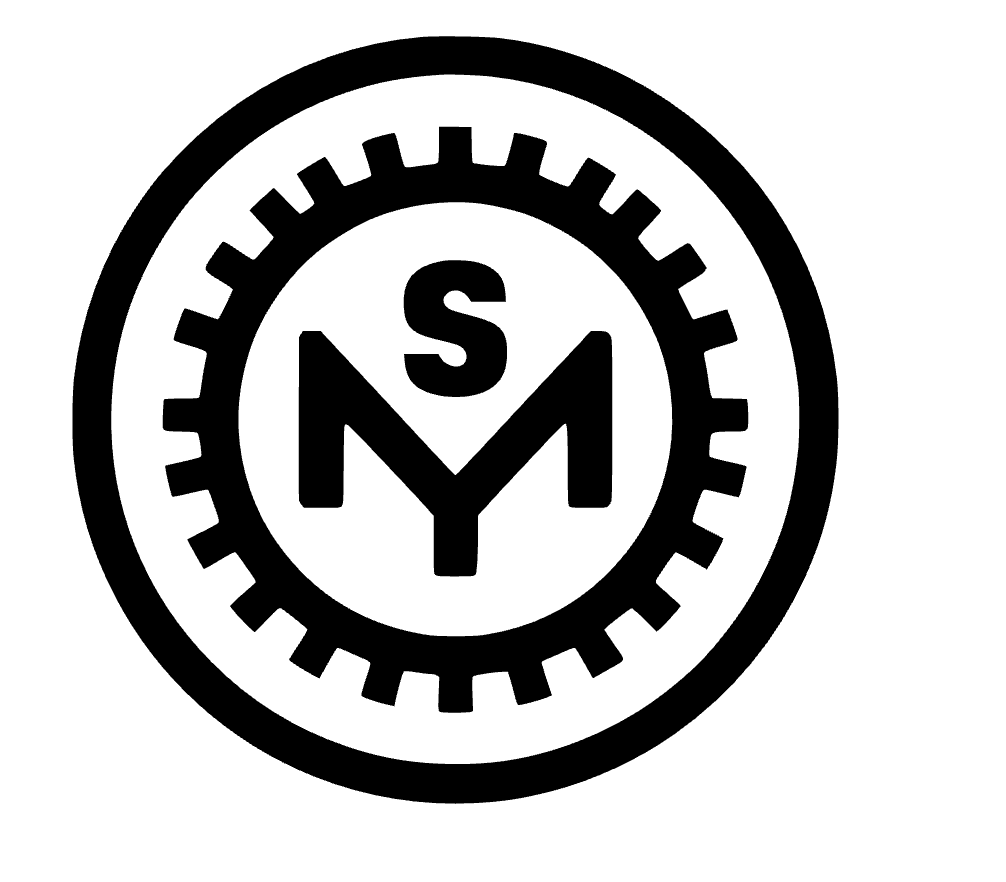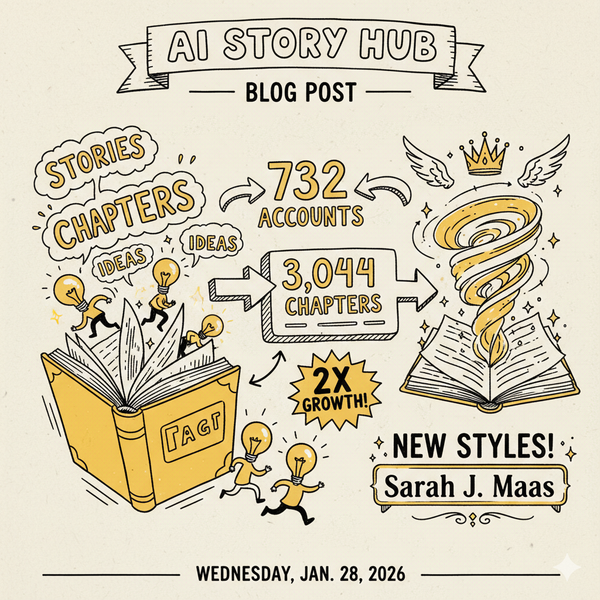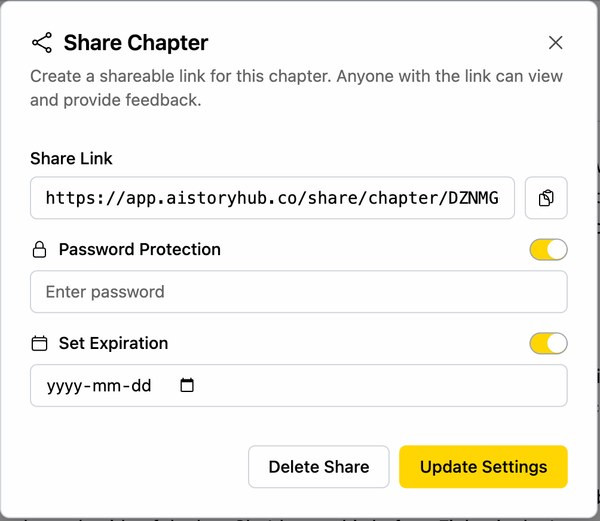Beyond the Bot. Why Human Writers Still Own the Story
Everyone's talking about AI writing tools. As someone who built one (aistoryhub.co), let me tell you: the magic has limits. Yes, AI can generate text, sometimes impressively. But dive deeper, and you hit the wall – the generic prose, the emotional uncanny valley.

It feels like everywhere you turn these days, there’s talk about AI and writing. As someone who’s spent considerable time in the trenches building aistoryhub.co, I’ve seen the excitement firsthand. There's this undeniable pull, this promise that AI can be the ultimate writer's assistant – smashing through writer's block, spitting out ideas, even drafting whole sections while you grab a coffee. The potential seems boundless, almost magical. We started building aistoryhub.co partly fueled by that potential, envisioning a tool that could genuinely help writers augment their process.
But the deeper you get, the more you realize the shiny surface hides a much more complex reality. It’s easy to get swept up in the hype, but working closely with the technology, seeing its output day in and day out, forces a more critical perspective. The initial promise of a tireless collaborator often bumps up against the limitations inherent in the algorithms themselves.
We see writers using AI for all sorts of things – brainstorming wild plot twists, outlining chapters, trying to breathe life into characters, or even just polishing grammar. And yes, AI can do these things, sometimes surprisingly well. It can churn out variations, suggest structures, and catch repetitive phrasing. In building aistoryhub.co, we aimed to harness these strengths, to provide that spark when needed.
Yet, there’s a persistent challenge, something we grappled with constantly during development and still see users navigate: the quality issue. AI often defaults to the generic, the predictable. It learns from a vast ocean of existing text, and like a student who has read everything but experienced little, its output can feel… well, average. It can sound grammatically perfect, even sophisticated, but lack that spark, that unique fire that makes writing truly compelling. You start noticing the patterns – the slightly formal tone, the repetitive sentence structures, the reliance on certain "AI-favorite" words. It can mimic style, but it struggles to originate it. We found ourselves constantly tweaking and refining, trying to push the boundaries, but acknowledging that the AI's "voice" often needed significant human intervention to feel authentic.
And that touches on something deeper: the soul of the writing. Can an algorithm truly capture the nuances of human emotion? Can it understand heartbreak, joy, irony, or the quiet desperation of a character staring out a rainy window? Based on my experience, not really. It can describe sadness based on patterns it's learned ("tears welled in her eyes"), but it can't feel it. That lack of lived experience creates a gap, an emotional uncanny valley. The text might be technically proficient, but it often lacks the genuine resonance that comes from a human heart and mind grappling with the complexities of life. This isn't a criticism of the tech itself – it's just recognizing its nature. It’s a tool, incredibly powerful in some ways, but not a replacement for human experience and empathy.
This leads to another concern, one that’s close to my heart as someone building a platform for writers: the impact on the writer's own voice and growth. It’s tempting, especially when facing a deadline or a blank page, to lean heavily on AI. But writing isn't just about producing words; it's about thinking, discovering, struggling. Those moments of difficulty are often where the real breakthroughs happen, where your unique perspective solidifies. If we constantly outsource the heavy lifting – the initial drafting, the structuring, the problem-solving – do we risk letting those creative muscles atrophy? Does our own voice get subtly smoothed out, nudged towards the algorithmic mean? With aistoryhub.co, the goal was always to be an aid, a co-pilot, not the pilot itself. We wanted to provide options and angles, but always with the intention that the writer remains firmly in control, shaping the final piece with their own distinct style and intent.
Then there are the ethical knots. Building aistoryhub.co meant confronting these head-on. Who owns the story when an AI contributes significantly? How do we navigate the murky waters of copyright, especially when the AI models themselves were trained on vast datasets that likely included copyrighted work scraped without permission? How do we ensure the AI doesn't inadvertently plagiarize or perpetuate biases hidden in its training data? And what about transparency? Publishers are starting to require disclosure if AI tools are used. This feels necessary, yet it also risks creating a stigma, where "AI-assisted" is unfairly judged as "lesser than," regardless of the human effort involved. As creators of a tool, we feel a responsibility to be transparent about its capabilities and limitations, and to encourage users to think critically about these issues. We also had to think deeply about data privacy – ensuring that the ideas and drafts users entrust to the platform remain theirs.
The technical limitations are real, too. AI struggles with maintaining long-term consistency in complex narratives. It can get lost in intricate plots, forget details, or fail to grasp subtext. It's brilliant at pattern matching but lacks true contextual understanding. You need to guide it carefully, feed it precise prompts, and constantly check its work. It’s not magic; it’s a complex system with specific strengths and weaknesses.
Looking ahead, the impact on the publishing world is undeniable. Will we see a flood of mediocre, AI-generated content making it harder for quality human writing to find an audience? How will readers react? Will algorithms increasingly dictate what gets read? These are big questions without easy answers. It feels like the challenge isn't just about AI writing books, but about how AI might reshape the entire ecosystem, from discovery to consumption.
So, where does that leave us? My journey with aistoryhub.co has reinforced my belief that AI can be a valuable tool in a writer's kit, but it's not the whole kit. The key is intentionality. Use it for specific tasks. Question its output relentlessly. Edit fiercely. Protect your voice. Never let it replace the core act of human creation – the thinking, feeling, and experiencing that breathes life into words. The human element, that spark of authentic insight and emotion, remains irreplaceable. AI can generate text, but only a human can truly tell a story.




